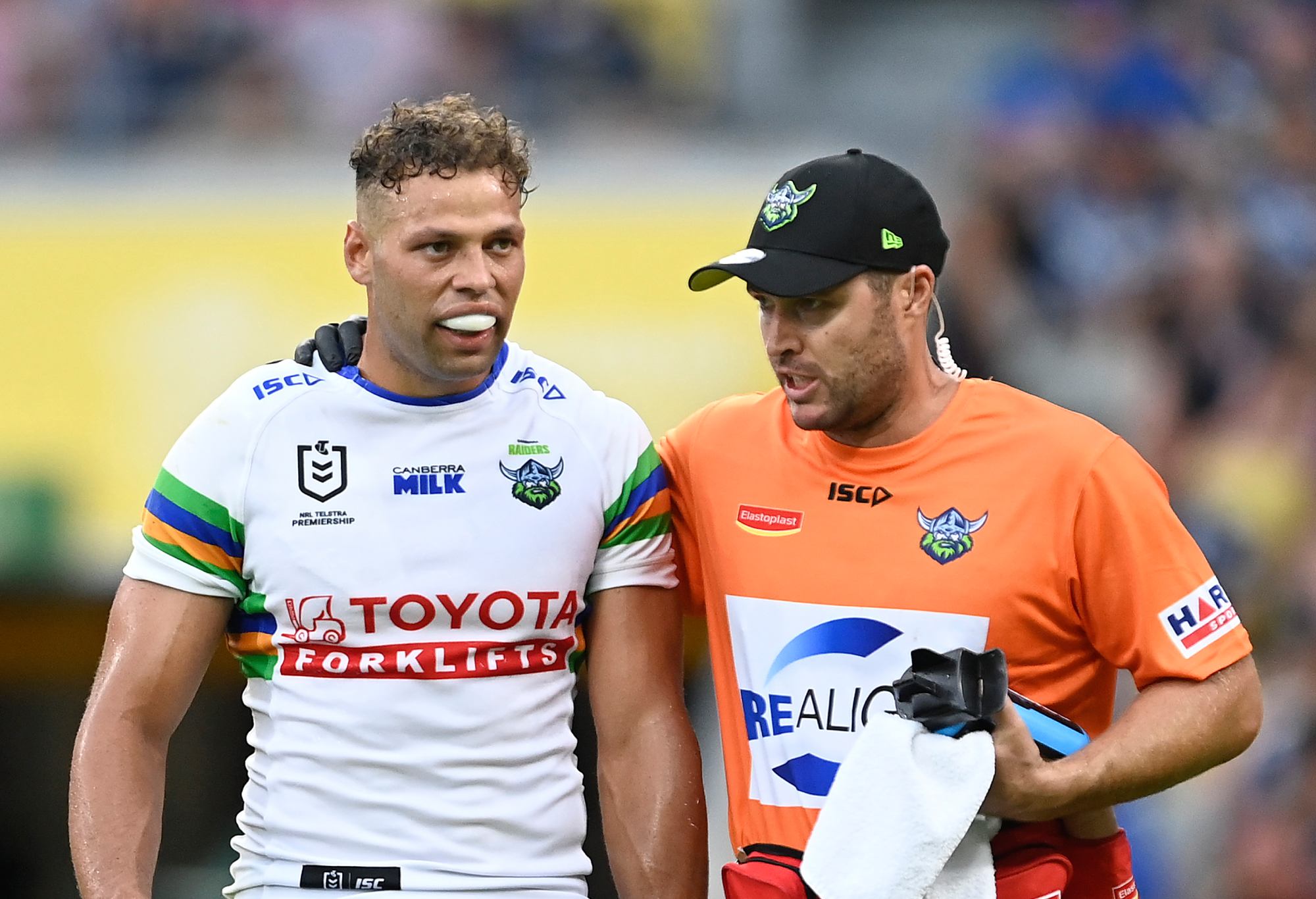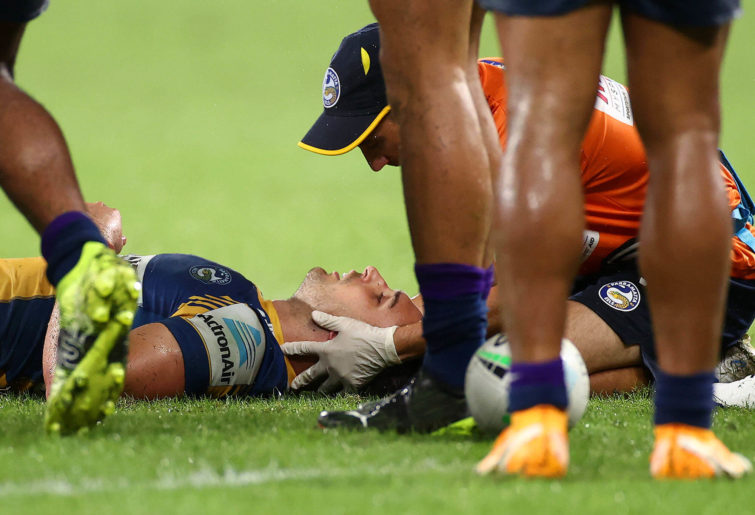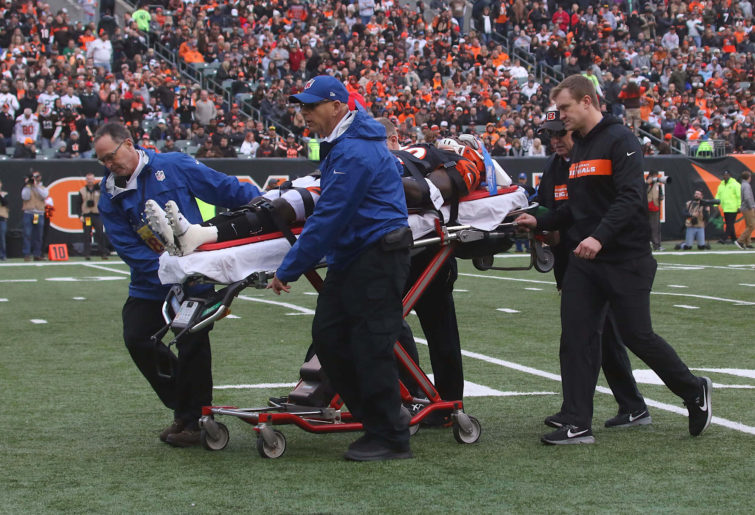In the past 12 months here’s a smattering of some of the issues faced by rugby league.
An extremely public and antagonistic Collective Bargaining Agreement negotiation process between the NRL and the Rugby League Players Association which is still not resolved.
St George Illawarra Dragons chair Craig Young writing a letter of support for Brett Finch, who pleaded guilty to using a carriage service to make child abuse material available.
The season of the Manly Sea Eagles absolutely disintegrating over a rainbow on a jersey and the less said about Jarome Luai’s speech at Brian To’o’s wedding, the better.
But for Phil Gould, none of these issues are even on the spectrum of what this week he called the NRL’s ‘greatest abomination’; the use of independent doctors being used to assess potential head injuries.
I’m not going to mince words. Gould’s comments are dangerous and irresponsible, as is plenty of the coverage of the concussion issue in mainstream media this week.
The fact that we are still having conversations in game coverage about whether headgear reduces concussion risk is staggering (it doesn’t).
I love rugby league. One of the things I love most about it is its physicality. This physicality distinguishes tackle footy from other versions of the game like tag and touch.
I want to see rugby league continue to grow and to be played for generations to come.
For that to be a reality, the safety of our players must be the top priority and the protocols which the NRL have introduced in recent years are an important and necessary step.
This does not mean the physicality of the game will dissipate. It just might look a little different.
The problem with people like Gould questioning the role of the independent doctor is his lack of expertise in this space and his conflict of interest given his role at the Bulldogs. No doubt his job is for Canterbury to win games of rugby league.

Sebastian Kris. (Photo by Ian Hitchcock/Getty Images)
Concussion is not as obvious as some of us think and in this space, my response is to trust a doctor who is highly trained and qualified.
These doctors understand concussion and its symptoms. They are experts. We are not. I would also rather err on the side of caution, especially if video is signalling to that doctor that a player is exhibiting Category 1 or Category 2 signs of concussion, requiring that player to undergo further assessment.
Questioning these important processes because a team may be without a player for 15 minutes is deeply concerning.
Gould was not the only one to weigh in on the debate this week and in fact, his comments came not long after Ricky Stuart unleashed after the Raiders loss to the Cowboys. Stuart pointed the finger at the NRL and the Rugby League Players Association.
He is not the first coach to make comments like this.
“The RLPA, the NRL, they don’t trust coaches mate. Do you think I’d let a player play if he has a concussion or is concussed?” Stuart said.
My response to this, is that I don’t trust coaches either. And I trust the players even less so.
This is not to question the integrity of any of the coaches in the NRL or any of our players.

Ryan Matterson of the Eels is attended to by a team trainer (Photo by Cameron Spencer/Getty Images)
But the reality is, most of these coaches are judged on performance and in rugby league that means winning games.
Coaches are constantly under pressure and if a team is not winning games, a coach can very quickly find themselves on the outer, with their livelihood on the line.
In a game that hangs in the balance, where the loss of one player early can sometimes mean the difference between winning and losing, it is absolutely conceivable that a coach may take a risk and allow a player to continue playing, based on a conversation they have with that player or their understanding of concussion symptoms.
Even if they don’t take the risk, they may turn their mind to it, which is just as problematic.
There is also a risk that players minimise potential concussion symptoms with their ultimate focus potentially being to get back onto the field with their teammates.
This risk is potentially even more pronounced in the women’s game, where shorter seasons may mean that players minimise symptoms so as to not miss game play.
Last month it was announced that the AFL may be facing a class action brought on behalf of former players suffering from the impact of concussion.
A law firm in Melbourne has signalled its intention to go to the Victorian Supreme Court.

Tony McRae #29 of the Cincinnati Bengals is carted off of the field after suffering a concussion (Photo by John Grieshop/Getty Images)
This follows class actions which have already been brought in the United Stated by NFL players.
This is not an issue which is going away in rugby league and in fact is one which needs more attention.
Think of how far the concussion protocols have progressed in the men’s game, but we are still learning on the impact of concussion on men, with lesser focus on the women’s game with even less known about how things like the menstrual cycle impacts concussion for women.
When it comes to the safety of our players, present and future, it is extremely important that relevant and useful information is presented to media commentators and fans.
But from my perspective in this space, I would rather err on the side of caution here and trust the advice of independent experts.
After all, I’m not a doctor.































































































